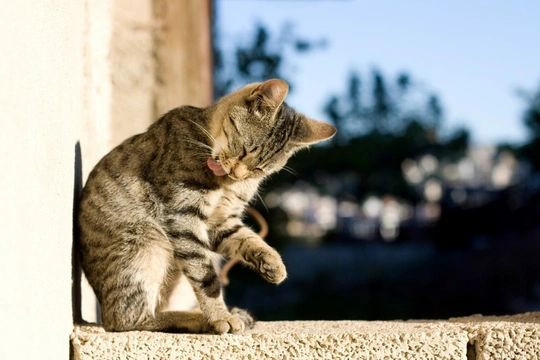
Six reasons for why your cat might not groom themselves
As anyone who has ever owned a cat will know, cats tend to be very fastidious about their personal hygiene, and will usually spend a significant amount of their time grooming their coats and generally tending to their appearance, cleaning themselves so that they look and feel just so; and it is unusual to see a cat that looks unkempt or that does not take good care of themselves.
However, some cats stop grooming themselves as they get older for various reasons, and some seem to take little to no care of themselves at all, and the reasons for this can be varied and numerous.
In this article, we will look at some of the reasons behind why cats may not groom themselves, and how to assess what’s going on. Read on to learn more.
Your cat never learned
The first few weeks that a kitten spends with their queen are some of the most important and formative ones in a cat’s entire lives, and it is really important that kittens are not weaned too early, and are allowed to stay with their queen and littermates to learn all about being a cat!
One of the first things that a cat will learn from their queen is how to groom and take care of their fur and coat-when the kittens are very young, their mother will wash and groom them herself, and as they get a little older and are able to learn, she will begin prompting them to wash themselves.
Kittens learn to wash by observing the behaviour of their mother and other cats, and for a cat that is either weaned too early or that has to be hand reared, they may never get the chance to learn how to do this-and while many such kittens will pick this up for themselves, or learn from watching other cats, some just don’t pick it up very well at all.
Joint problems
If your cat is getting older and becoming quieter, less mobile and less active, it is entirely possible that they might be beginning to suffer from joint stiffness, or the onset of one of the chronic conditions that sometimes come with aging, such as arthritis. Stiffness or joint pain can serve to not only make your cat less mobile and less willing to exercise, but it can also affect them in other ways as well, such as making them reluctant or unwilling to groom themselves.
This is something that takes time, and so it may not become apparent that your cat is having problems grooming themselves until this becomes quite pronounced, but this is certainly something to bear in mind.
Dental issues
Few cat owners pay as much attention to their cat’s teeth and dental hygiene as they should, and most cats over the age of around five will have the beginnings of plaque, tartar and dental issues, and as they get older, these problems will become more and more pronounced and may begin to cause them pain and discomfort.
Bad breath, eating delicately or dropping food when eating and a whole range of other things can all indicate that your cat’s teeth are making them miserable, and this is why it is important to have their teeth checked out by the vet regularly and if necessary, have them professionally cleaned and cared for as needed.
Painful teeth or gums can lead to a reluctance or unwillingness to groom in the cat, if their dental problems make things worse-and so this is something to think about and potentially, ask your vet to check out.
Weight issues
Cats do not tend to gorge themselves or have problems regulating their own food intake, but as they get older, they can gain weight as they continue to eat as normal while also becoming less active.
If your cat is overweight, they may be less able to groom themselves efficiently, as they simply cannot reach all of their bodies-and if their weight comes combined with joint issues, this can serve to stop your cat from grooming themselves altogether.
Longhaired cats
When it comes to longhaired cats, they tend to be just as fastidious about their grooming as shorthaired cats, but have to do more work to get things just so! Longhaired cats are also more likely to develop hairballs from grooming, and some longhaired cats tend to get small areas of matted or tangled fur that no amount of self-grooming will sort out.
Keep an eye out for matted areas around the bottom, under the armpits and behind the ears-brushing these areas regularly can help to prevent matting and tangled fur.
Senility
Finally, as well as the various physical issues that can accompany old age in the cat and serve to prevent grooming, older cats can and sometimes do also suffer from senility, which can have many different effects on them-such as dementia and other mental conditions that can affect your cat’s behaviour, and serve to cause them to stop grooming and doing some of their other normal behaviours.



